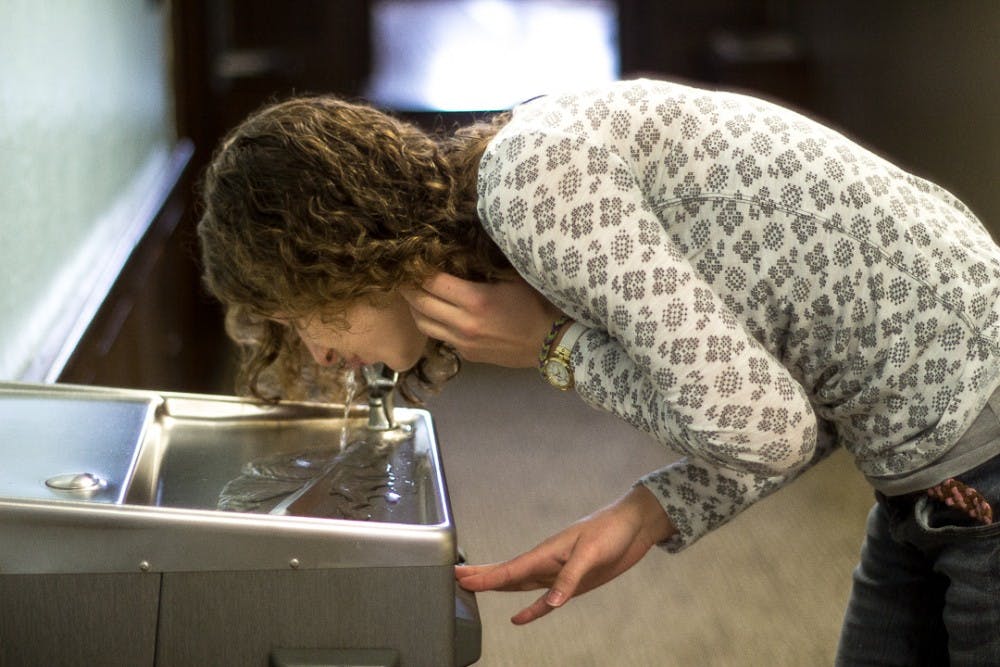Three of MSU's groundwater pumping wells are out of rotation as a result of high radium levels found during recent testing, according to Director of Utilities Robert Ellerhorst.
If 5,000 people drank directly from Well 15 at its most contaminated for their entire lives, one of them would end up with a deadly form of cancer; according MSU environmental engineering professor Susan Masten, that's similar to the likelihood of dying in a car accident.
Radium, a naturally occurring radioactive element, is monitored to meet federal and state safety requirements. The maximum contaminant level, or the level at which utilities must take action to reduce the radium, is 5 picocuries of radium per liter of water, or pCi/L. Two rounds of testing in March and July found the three wells that were taken offline, Wells 15, 21 and 27, had radium levels above the maximum level.
Well 15 was the most consistent offender, testing at a high of 6.4 pCi/L in March before coming down to 5.4 pCi/L in July. Well 21 came in below the limit in the spring at 4.8 pCi/L, but upon retesting in July, broke the maximum threshold, skyrocketing to 6.1 pCi/L. Well 27 initially tested barely above the maximum, measuring at 5.1 pCi/L in March, a level that increased to 6.4 pCi/L during the second round of testing.
"Based on this data at 6.4 pCi/L, the lifetime fatal cancer risk is about one in 5,000," Masten said in an email.
The 1 in 5,000 chance still may seem alarming, but this does not mean that drinking MSU water comes with these risks. Ellerhorst clarified that the wells, which pump groundwater from the Saginaw Aquifer, are not providing water directly to taps on campus. MSU's water treatment facilities take steps to disinfect and monitor all of the water the wells pump, so the levels detected at the point of collection may not be the level you drink from your water bottle.
MSU's 2016 Water Quality Report, released in June, showed that as a whole, radium levels in MSU's drinking water were at 3.7 pCi/L. Ellerhorst doesn't think the university-wide measured level is close enough to the maximum level to warrant concern, because it is similar to measures of radium found in the past.
"The initial rules, they had us testing annually, but because we consistently were right around this target level we're on a three-year cycle," Ellerhorst said. "The one before was also a number in the threes, so that's consistently where that number's been."
The previous radium level, tested in 2013, was at 4.1 pCi/L and not "in the threes" as Ellerhorst stated, yet even this level is below the maximum level. In 2010 and 2003, the two previous tests, the level was 3.3 pCi/L and 3 pCi/L, respectively.
Students seemed unaware that the wells had been shut down, saying they hadn't received IPF alerts on the matter like they do for things like red water. This frustrated business sophomore Adam Sikorski, who believed the shutdown was serious enough to inform students. Although he originally thought the wells had been directly supplying contaminated water to campus taps, upon being corrected, his worries still weren't completely assuaged.
"It's kinda offsetting to think that would be an issue we would have here," Sikorski said. "You'd think that the sink water would be okay to drink and we wouldn't have to worry about things like that."
Chemistry education freshman Matthew Neumann largely agreed, saying the fact that the wells were only a point of collection and not the same as drinking water only had a small impact on his worries. While he said he didn't know enough about the situation to have "an informed opinion," he still pointed to the lack of communication on the matter as a concern.
"I think it's interesting, mostly that we haven't heard much about it," Neumann said. "It's obviously not a direct connection between well to sink or fountain or whatever. The processing I'm sure has some removal of the heavy metal content. It definitely lessens it a little, but it's still kind of scary."
Support student media!
Please consider donating to The State News and help fund the future of journalism.
Discussion
Share and discuss “Three MSU wells shut down for high radium levels” on social media.







